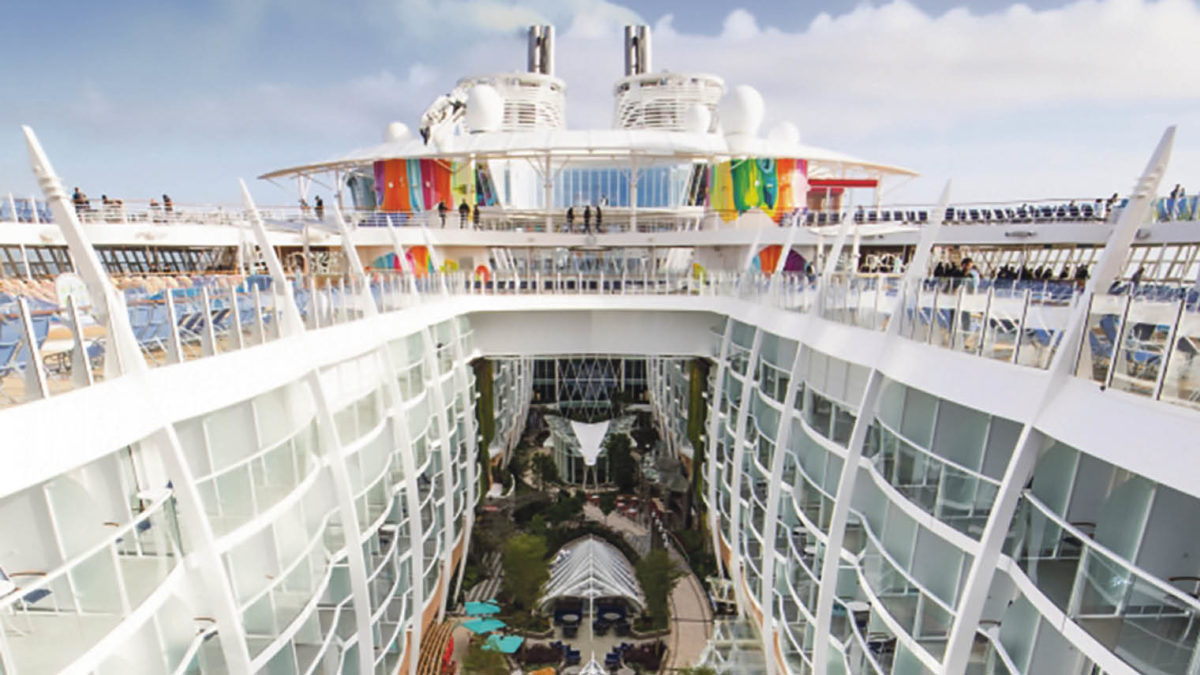A few feet short of the Empire State Building, Royal Caribbean’s Symphony of the Seas is the world’s tallest and largest cruise ship with 18 floors and room for more than 6,000 passengers. With 24 pools, the tallest water slide at sea at 10 storeys high, robot bartenders as well as activities such as zip-lining, ice-skating and rock-climbing, it’s the latest salvo in the global cruise industry’s campaign to win the hearts and minds of a rapidly expanding cruise market.
Increased demand from China and Africa is opening new markets; changing demographics mean the industry must attract younger customers; experience seekers are looking for new destinations; and the variety of on-board activities is exploding. The expansion in mega cruise ships is the most visible sign of the battle for passengers, driven by economies of scale and new technologies.
Growing competition driving battle for customers
‘‘Demand from consumers has exceeded supply,” says Alastair Pritchard, head of Deloitte’s Transportation, Hospitality & Leisure practice. “As new ships arrive we’re likely to see a tipping point where cabin supply will exceed demand, so the market is going to get a lot more competitive.”
Capacity growth is clearly underway, with 120 new cruise ships already committed with a pipeline out to 2027, with an investment value of around $65 billion.
James Brown, partner Haynes and Boone says: “there has certainly been an arms race to build bigger and more ‘impressive’ vessels and to refit vessels that may only be a few years old to ensure that they continue to appeal to consumers.”
Silversea’s Silver Spirit, for example, was cut in half in 2018 to add further capacity by way of a new, expanded midsection, making her the first luxury ship to be lengthened in this manner.

The deck of Symphony of the Seas
What matters for the global cruise industry is to find new passengers and get them on the right ship. According to IRN Research, nine out of ten of those taking a cruise will do so again within 12 months. And so matching the right passenger to the right experience means they are very likely to book again.
Innovations in technology have ensured that passengers have an improved digital experience as well, such as MSC’s own voice assistant Zoe, or upgrades to on-boarding, facial recognition, interactive screens, and app-based tools and navigation – all weapons being deployed in the battle for customers.
Getting passenger experience right to drive success
It’s not just digital experiences that are being upgraded. While some lines offer the all-in-one multi-generational experience, there are other forms of experience to be explored. New players are entering the market with niche vessels and innovative concepts capable of shaking up the industry and fostering innovation, both in terms of technology and the overall cruising experience.
Richard Branson’s Virgin Voyages is a fleet of ships designed with environmental responsibility in mind, while the Ritz Carlton Yacht Collection’s new build, dubbed the “anti-cruise ship”, is aimed at providing a more bespoke service.
Mr Brown says younger generations, such as generation Z, are “typically regarded as being ‘experience focused’ rather than ‘acquisition focused’, and the cruising industry has responded by offering experiences such as music festivals at sea to capture some of this part of the market”.
We’re likely to see a tipping point where cabin supply will exceed demand, so the market is going to get a lot more competitive
The exploration section of the industry has not been immune to innovation too, with cruises offered to the Galápagos Islands, to view the Northern Lights, and even the Arctic. Scenic’s Eclipse, for example, provides a nearly 1:1 staff ratio carrying just 200 guests into polar waters, with helicopters and submarines to explore.
Global cruise industry must tackle environmental challenges
Juha Koskela, managing director of ABB Marine and Ports, says: “Travellers who venture into remote destinations, such as the Arctic and Antarctica, are likely to be passionate that the environment is left unspoiled.”
But this is an issue for traditional cruises too. Ports of call for the global cruise industry, including Amsterdam, Dubrovnik, Barcelona and, of course, Venice are calling for more control of the mega cruise ships polluting their waters.
It has been reported that the city of Venice has taken steps to direct the very largest mega cruise ships away from the main lagoon, directing the vessels to other terminals. While environmentalists see the global cruise industry as responsible for pollution, particularly the release of large quantities of sulphur dioxide, supporters argue that the industry is being proactive and even unfairly blamed. When a cruise ship delivers 4,000 visitors to a city that already has 50,000 it may not help, but it’s not the cruise industry’s sole responsibility.
There are technical solutions for these challenges, from apps assessing the busiest parts of the city, the staggering of arrival times, seeking new ports or building infrastructure for new ports, as well as liquefied petroleum gas fuel to minimise impacts on environment, even removing single-use plastics.
“The harbours could be partially moved from the immediate proximity to cities,” says Mr Koskela. “However, one of the key solutions here is the shore connection technology that can enable zero-emission port stays for cruise vessels.”
The mega cruise ships are leading the charge in the global cruise industry, with MSC sailing 13 mega cruise ships, Royal Caribbean 10 and Carnival – through P&O, Princess and other brands – running multiple giant ships. Getting the customer pitch right, however, will be the key to long-term success.
Growing competition driving battle for customers

